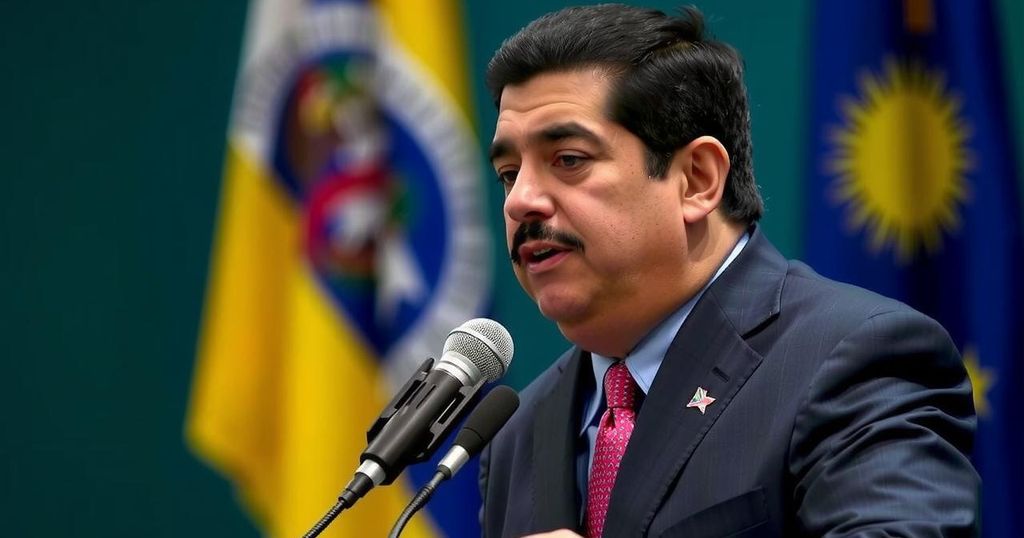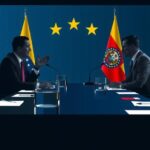Maduro Asserts Venezuela’s Resolve After Brazil’s BRICS Membership Veto
Venezuelan President Nicolas Maduro responded to Brazil’s veto of Venezuela’s BRICS membership bid, asserting that his country will not be silenced. The veto is attributed to strained relations following Maduro’s disputed re-election, with accusations from Brazil of a breach of trust as he has yet to publish promised election results. Maduro claims to maintain the support of other nations amid his administration’s ongoing economic crisis.
During a recent statement, Venezuelan President Nicolas Maduro responded strongly to Brazil’s veto of Venezuela’s application to join the BRICS group, emphasizing that his nation would not be silenced. The decision came at a summit in Kazan, Russia, where Maduro characterized the veto as a “hostile” and “immoral” act. He asserted on state television that Venezuela’s voice would remain unimpeded, stating, “no one will block or silence Venezuela, not today, not tomorrow, not ever.” This assertion comes amidst rising tensions between Maduro and Brazilian President Luiz Inacio Lula da Silva, historically known as an ally of Maduro but whose relationship has grown strained following allegations of electoral misconduct in Venezuela’s recent elections. Former Foreign Minister Celso Amorim noted the veto stemmed from a “breach of confidence,” with Maduro failing to deliver promised electoral results that could clarify allegations of electoral fraud against him. Maduro maintains that his government retains support from various nations, having met with representatives from nearly thirty governments during the summit, who allegedly congratulated him on what he claims was a decisive electoral victory.
Venezuela has been facing a severe economic downturn, which the government attributes to U.S. sanctions. As a nation in crisis, Venezuela has sought integration into BRICS, a coalition of major emerging economies comprising Brazil, Russia, India, China, and South Africa. In 2024, the group expanded to include Ethiopia, Iran, Egypt, and the United Arab Emirates. The recent decision by Brazil to veto Venezuela’s membership application is indicative of broader geopolitical tensions, particularly regarding Maduro’s controversial re-election in July, which has been challenged by domestic opposition.
The Venezuelan government is actively confronting diplomatic challenges following Brazil’s veto of its BRICS membership bid, reflecting strained relations between Maduro and Lula. While Maduro continues to assert the legitimacy of his electoral victory, the international community remains divided on the recognition of his administration’s legitimacy. The ongoing economic crisis in Venezuela further complicates the nation’s prospects for international cooperation and support.
Original Source: www.thehindu.com








Post Comment